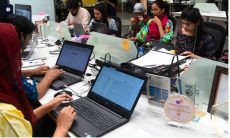Pakistan and Saudi Arabia have announced the launch of a new Economic Cooperation Framework to further strengthen bilateral ties and expand joint economic ventures.
The agreement was reached during a high-level meeting between Prime Minister Shehbaz Sharif and Saudi Crown Prince Mohammed bin Salman, where both leaders reaffirmed their commitment to deepening economic collaboration based on shared interests.
According to official sources, the newly introduced framework will focus on trade, investment, energy, infrastructure, and technology, aiming to unlock untapped potential in both economies. The initiative is seen as a major step forward in transforming the long-standing relationship between the two nations into a more structured and results-driven partnership.
Prime Minister Shehbaz Sharif emphasized that the framework represents a new chapter in Pakistan–Saudi Arabia relations, highlighting the importance of mutual growth and regional stability. He added that Riyadh’s continued support in development and investment has played a key role in strengthening Pakistan’s economic position.
Crown Prince Mohammed bin Salman welcomed the move, describing it as an opportunity to align the two countries’ economic visions. The framework is expected to attract Saudi investment in Pakistan’s key sectors, including renewable energy, mining, and infrastructure development.
Analysts believe the new framework could also lead to the expansion of the Pakistan–Saudi Investment Conference, facilitating more business partnerships and cross-border collaborations. It will serve as a platform to address trade barriers and accelerate financial cooperation between the two allies.
In addition to boosting investment, the agreement reflects both nations’ shared commitment to economic diversification and sustainable development. This partnership aligns with Saudi Vision 2030 and Pakistan’s efforts to revitalize its economy through foreign partnerships and private-sector growth.
The two sides also discussed enhancing labor cooperation, technology transfer, and tourism, aiming to create new employment opportunities for Pakistani workers in the Gulf region.
In a related development, Pakistan recently issued a warning that renting homes to Afghan migrants could lead to legal action, underscoring the government’s renewed focus on law enforcement alongside economic reforms.
For more on Pakistan’s ongoing policy measures, read about how renting homes to Afghan migrants could lead to jail as the government tightens its immigration regulations











